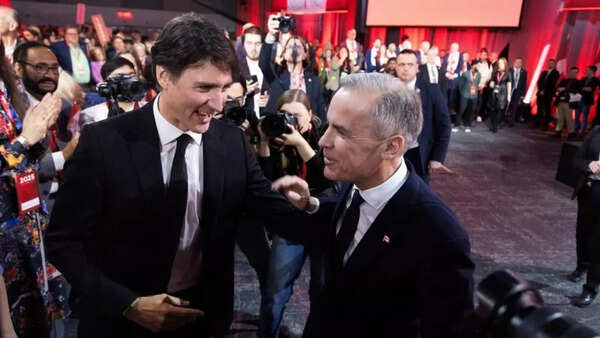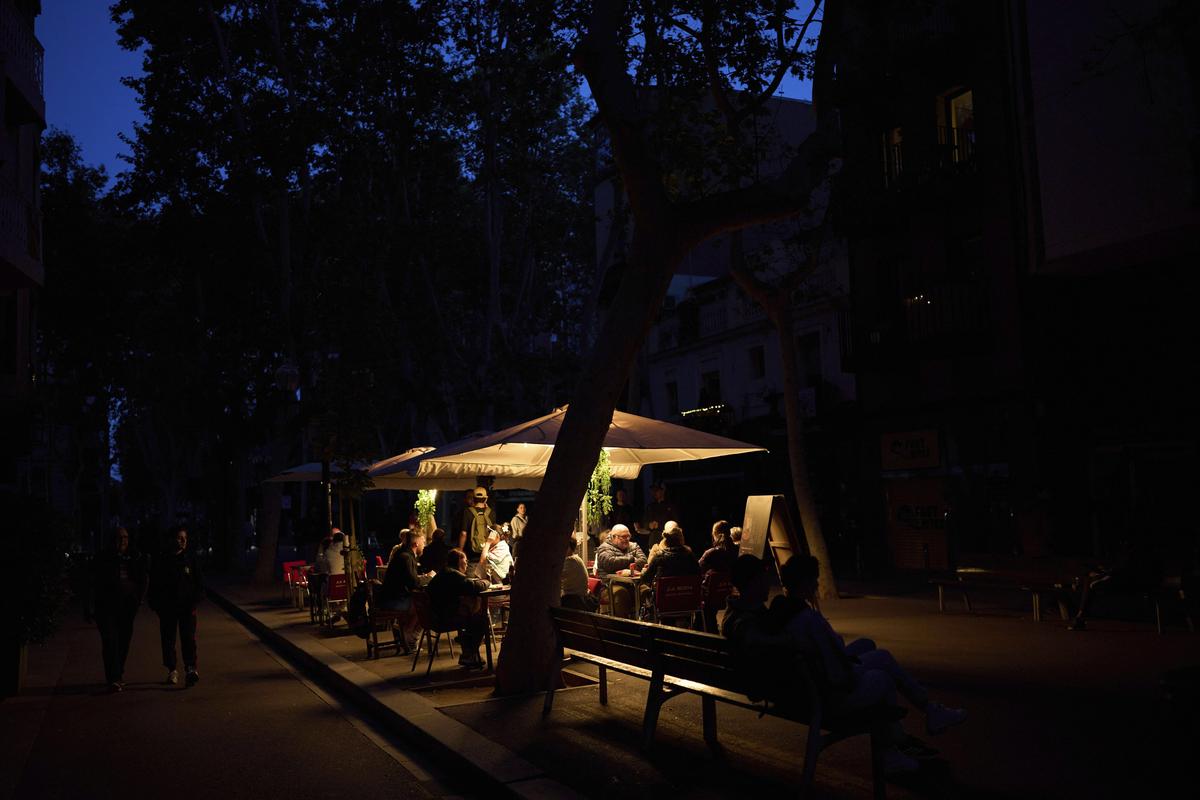Power had almost fully returned to Spain early on Tuesday morning (April 29, 2025) as many questions remained about what caused one of Europe’s most severe blackouts that grounded flights, paralysed metro systems, disrupted mobile communications and shut down ATMs across Spain and Portugal.
By 6:30 a.m., more than 99% of energy demand in Spain had been restored, the country’s electricity operator Red Eléctrica said.
Power had gradually returned to several regions across Spain and Portugal as the nations reeled from the still-unexplained widespread blackout that had turned airports and train stations into campgrounds for stranded travelers. By Monday night, Portuguese grid operator REN said 85 out of 89 power substations were back online.
A security guard speaks with a woman outside a temporarily closed metro station during a nationwide power outage in Madrid on April 28, 2025.
| Photo Credit:
AP
Monday (April 28) night, many city residents, including in Spain’s capital of Madrid, went to sleep in total darkness. The normally illuminated cathedral spires of Barcelona’s Sagrada Familia Basilica became indistinguishable from the night sky. Streets remained deserted even in neighborhoods where lights flickered back on, as people stayed home after a day of chaos.
“We have a long night ahead,” Spanish Prime Minister Pedro Sánchez said when he addressed the European nation late on Monday (April 28). “We are working with the goal of having power restored to the entire country.”
In Madrid, cheers erupted from balconies where the electricity had returned.
People ride a crowded bus, after the metro was closed during a power outage, in Madrid, Spain on April 28, 2025.
| Photo Credit:
Reuters
On Tuesday (April 29) morning, Madrid’s metro system said service would be restored on all but one line by 8 a.m., meaning that 80% of trains would be operating again during rush hour.
As metro service stopped on Monday (April 28), train stations cleared out and shops and offices closed, and thousands of people spilled onto the streets of Madrid.
Emergency workers in Spain said they rescued some 35,000 passengers stranded along railways and underground. By 11 p.m., there were still 11 trains backed up by the power loss awaiting evacuation, Mr. Sánchez said.
The blackout turned sports centers, train stations and airports into makeshift refuges late Monday.
People wait outside a closed metro station, during a major power outage in Barcelona, Spain on April 28, 2025.
| Photo Credit:
AP
“We were in the north of Portugal and did get any notifications until we got here because of internet outage,” said Ian Cannons, a British tourist trying to get home who was forced to spend the night in Lisbon’s airport. “We can’t book any hotels. Nothing.”
The Barcelona municipality distributed 1,200 cots to indoor recreation centers to host residents with no way to get home and international travelers left in limbo. All over Barcelona and Madrid, people were sleeping on train station benches and floors.
People walk through a metro station during a power outage in Madrid, Spain on April 28, 2025, in this screengrab obtained from a video posted on social media. Photo: Masha/Masha_Zha Via Reuters
As internet and mobile phone services blinkered offline across Spain and Portugal, battery-powered radios flew off the shelves. Those fortunate enough to find service shared whatever news updates they could with strangers on the street.
Lines snaked out of the few supermarkets running on backup generators in Barcelona and Lisbon as people stocked up on dried goods, water and battery-powered flashlights and candles. Clerks counted euros by hand, since many cash registers had stopped working.
Customers dine in a restaurant illuminated by a generator during a blackout in Barcelona, Spain on April 28, 2025.
| Photo Credit:
AP
Hector Emperador, picking his kids up from school in Barcelona, said he resorted to raiding his sons’ piggybank to ensure he had cash on hand after ATMs and some online-banking services shut down. “The coronavirus pandemic will be nothing compared to this,” he said.
Few gas stations were operating, sending the drivers who dared navigate without traffic lights scrambling for fuel. Residents with electric door keys found themselves locked out of their homes.
People board metros as the metro operations resume partially, after power begins to return following a huge outage that hit Spain and Portugal, in Madrid, Spain on April 29, 2025.
| Photo Credit:
Reuters
The many inconveniences became a threat to survival for those with medical needs like refrigeration for insulin or power for dialysis machines and oxygen concentrators. Some hospitals — but not all — stayed open with the help of generators.
Officials did not say what caused the blackout, the second such serious European power outage in as many months after a fire at Heathrow Airport shut down Britain’s busiest travel hub on March 20.
They said there was little precedent for this kind of widespread electric failure across all of the Iberian Peninsula, with a combined population of some 60 million. Across the Mediterranean Sea, Spain’s Balearic Islands and the territories of Ceuta and Melilla were spared. The Canary Islands off the northwest coast of Africa were also spared.
“We have never had a complete collapse of the system,” Mr. Sánchez said, explaining how Spain’s power grid lost 15 gigawatts, the equivalent of 60% of its national demand, in just five seconds.
In his televised address late on Monday (April 28), Mr. Sánchez said that authorities were still investigating what happened. Portugal’s National Cybersecurity Center threw cold water on feverish speculation about foul play, saying there was no sign that the outage resulted from a cyber attack.
Speaking to reporters in Brussels, Teresa Ribera, an executive vice president of the European Commission, also ruled out sabotage. Nonetheless, the outage “is one of the most serious episodes recorded in Europe in recent times,” she said.
Published – April 29, 2025 01:27 pm IST




































